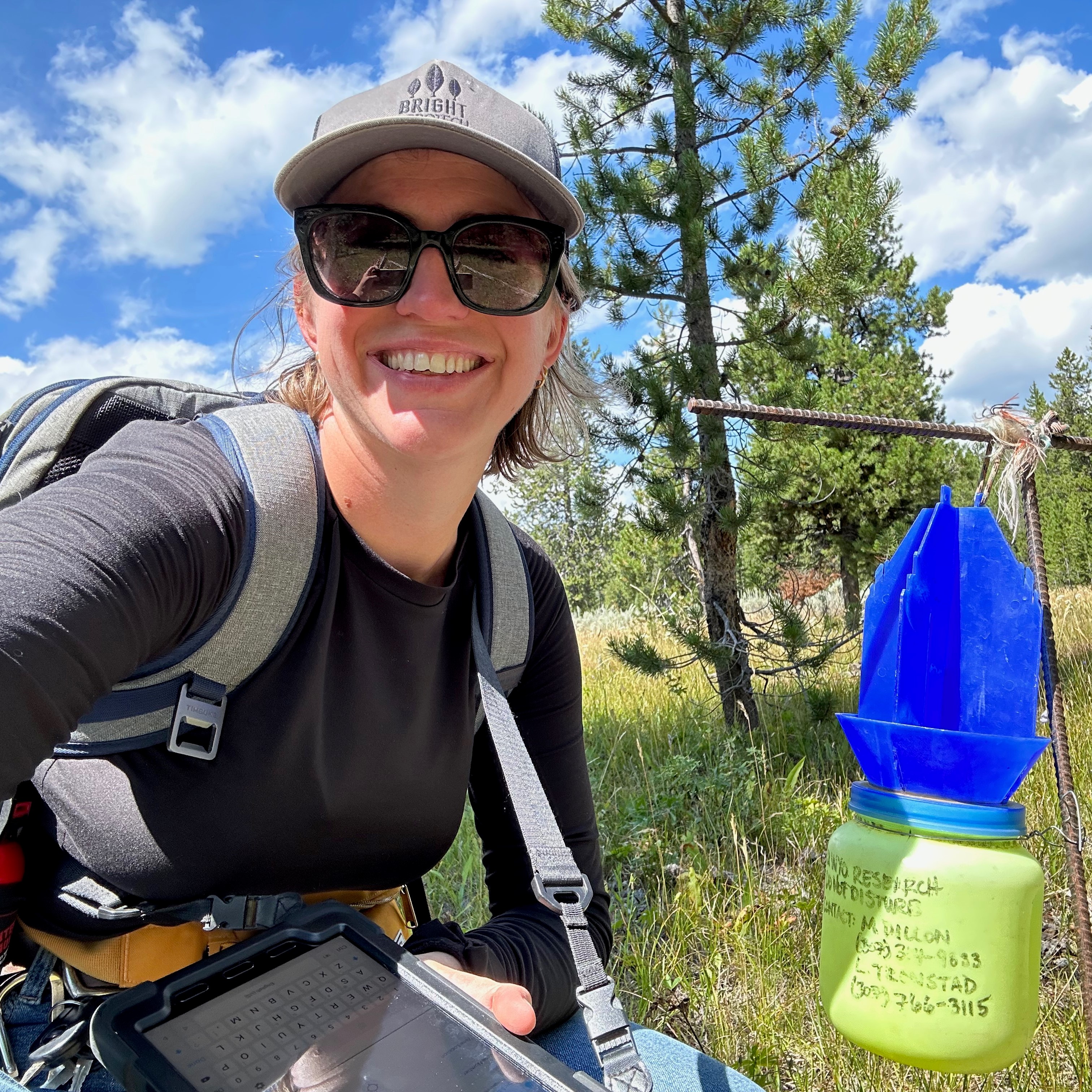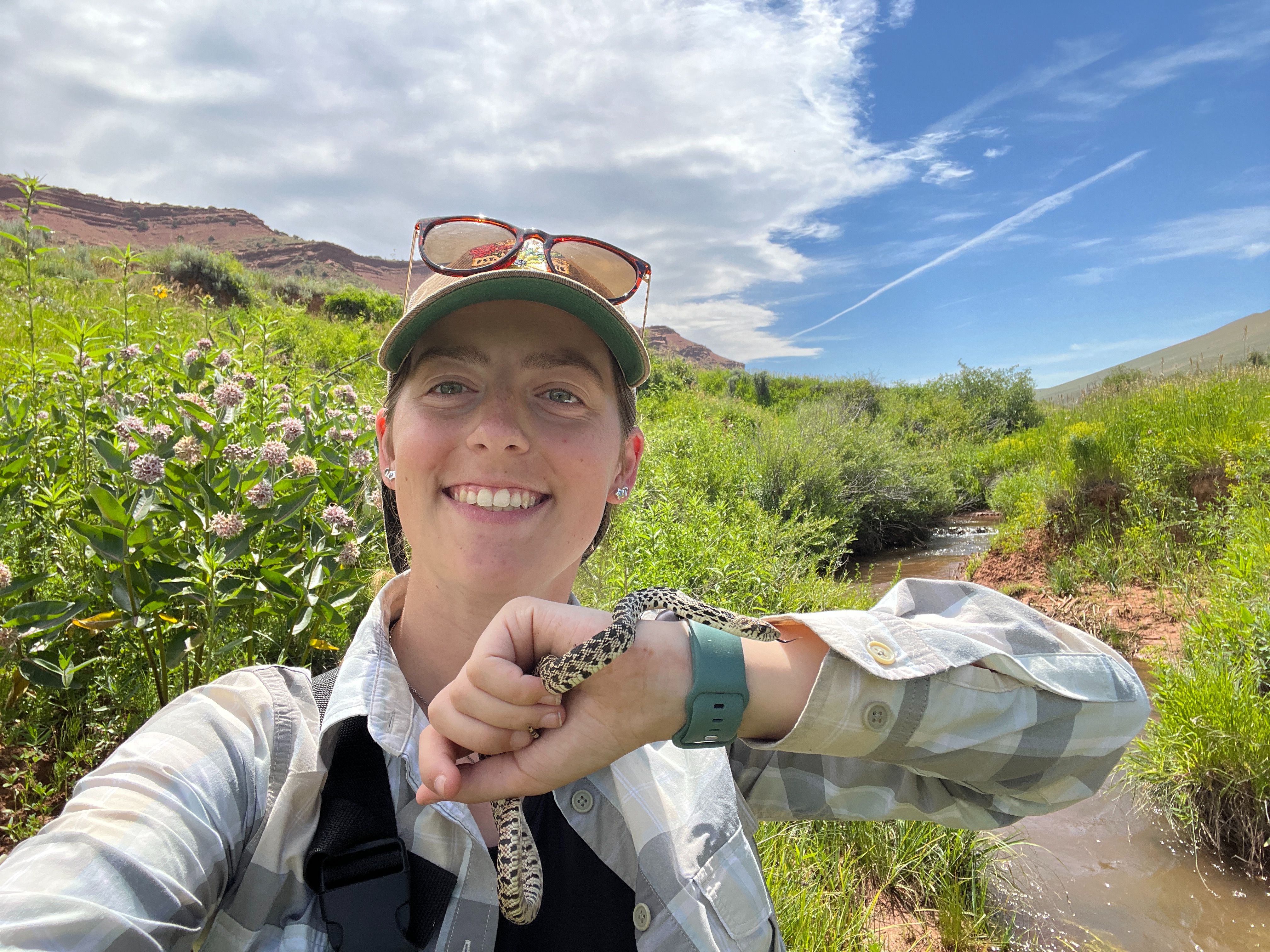No Slides Entered.
Mary De Aquino - "The importance of species-level versus group-level traits in maintaining multispecies interactions"
Mary De Aquino
2024 Recipient of the Biodiversity Institute Graduate Student Excellence Grant
Department of Zoology and Physiology
Graduate Advisor: Corey Tarwater
Background:
Human disturbances such as climate change and habitat alteration are driving species extinct at unprecedented rates. Given these ongoing threats, it is critical that we understand the mechanisms that support resilient ecological communities. Increasingly, ecologists are recognizing the importance of species interactions in shaping patterns of biodiversity and driving stability. My research explores how groups respond to disturbance and the extent to which stability is driven by interactions across the group versus the presence of particular species. I am addressing this question in the mixed-species groups of birds that forage at army ant swarms. Army ants are carnivorous insects that occur in lowland forests across the Neotropics. To catch their insect prey, army ants perform raids across the forest floor. The ants’ activity flushes large numbers of insects, and many species of birds, mammals, reptiles, and even fish have been observed feeding at ant swarms. Over 450 bird species (that’s over 12% of tropical bird species!) forage at ant swarms, leading to complex interactions between both the ants and birds and within the groups of birds themselves. Previous work suggests that some bird species are especially important in the formation of these ant-following groups, as they provide acoustic information that alerts others to the ants’ whereabouts. However, how particular species contribute to the maintenance of these groups, and how they respond to loss of different species, is not well understood.
My project addresses how species loss and changing environmental conditions impact ant-following birds. I collect data on the groups of birds attending swarms across an environmental gradient and perform field experiments mimicking species loss. I do this by temporarily removing different species of birds from swarms (capturing them in nets and keeping them in safe holding bags) to see how this impacts the composition and behavior of bird groups attending ant swarms. My research will enhance our understanding of the basic ecology of an important tropical system and provide valuable insight into the mechanisms that generate and maintain species interactions across ecosystems.
Share This Page


Image of bird: Ocellated Antbird, Phaenostictus mcleannani, in the hand. This is one of the species we experimentally remove from swarms. Ocellated Antbirds are highly specialized ant followers, obtaining almost all of their food at ant swarms.
Research Highlights




